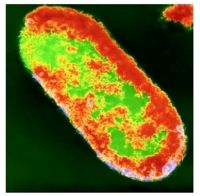Homosexuality and shigellosis
 From Conservapedia - Reading time: 2 min
From Conservapedia - Reading time: 2 min
MSM is a medical abbreviation for men who have sex with men.
The Center for Disease Control and Prevention (CDC) indicates:
| “ |
|
” |
In 2017, the Center for Disease Research and Policy and the University of Minnesota reported in an article entitled Shigella in gay men growing more antibiotic resistant:
| “ | Nearly a quarter of Shigella isolates tested in New York City showed decreased susceptibility or resistance to recommended antibiotics, and most of those infections were among gay men, researchers reported today in Emerging Infectious Diseases.
For the study, investigators from the Centers for Disease Control and Prevention (CDC) and the New York City Department of Health and Mental Hygiene performed susceptibility testing on 978 Shigella isolates submitted to New York public health laboratories from March 2013 through May 2015; 295 of those isolates were linked to an outbreak and analyzed separately, and 683 were defined as sporadic.[2] |
” |
In February of 2007 the journal Clinical Infectious Diseases reported in a article entitled Another Perfect Storm: Shigella, Men Who Have Sex with Men, and HIV:
| “ | In the mid-1970s, outbreaks of Shigella infection among adults in New York and San Francisco raised the possibility that Shigella species may be sexually transmitted, with most infections occurring in men who have sex with men (MSM). Since these early observations, Shigella infection appears to be more frequent among MSM than among other adult populations...[3] | ” |
Shigellosis and proctitis are both illnesses associated with gay bowel syndrome.[4] In addition, it was also indicated previously that shigella can cause proctitis which may increase the chance of HIV infection.[5][6] See also: Homosexuality and proctitis
In February of 2007 Journal of Infectious Diseases published an article titled Case-control study of shigellosis in San Francisco: the role of sexual transmission and HIV infection. The abstract for the article stated: 'Among MSM [men who have sex with men], shigellosis is predominantly a sexually transmitted disease, with direct oral-anal contact conferring the highest risk and HIV infection likely contributing to increased host susceptibility."[7]
Shigellosis is particularly hazardous for individuals with AIDS or other immunodeficiency states. [8]
See also[edit]
References[edit]
- ↑ Shigella Infections among Gay & Bisexual Men, excerpt from PDF downloaded on February 2, 2019
- ↑ Shigella in gay men growing more antibiotic resistant, Center for Disease Research and Policy and the University of Minnesota, 2017
- ↑ Clinical Infectious Diseases 2007;44:335-337
- ↑ The gay bowel syndrome: clinico-pathologic correlation in 260 cases.
- ↑ http://www.mayoclinic.com/health/proctitis/DS00705/DSECTION=3
- ↑ Medscape - New Look at "Gay Bowel Syndrome"
- ↑ [http://lib.bioinfo.pl/auth:Reingold,A J Infect Dis. 2007 Nov 1;196 (9):1346-1354 ]
- ↑ http://www.medterms.com/script/main/art.asp?articlekey=6323
 KSF
KSF